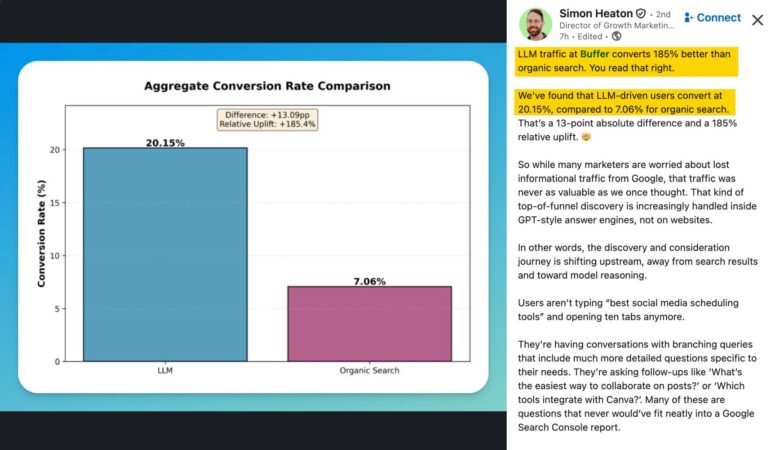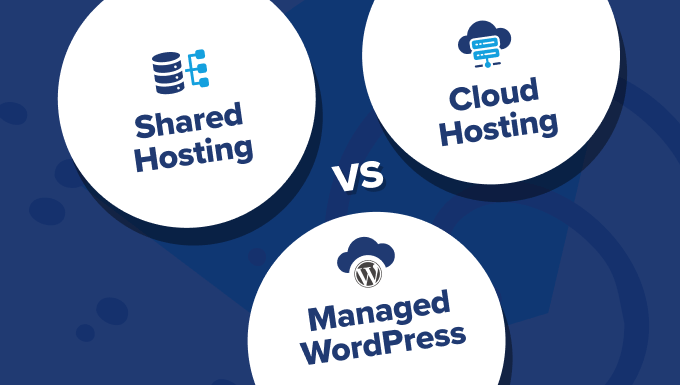
In today’s rapidly evolving digital landscape, businesses of all sizes face a crucial decision: Should you power your web applications and websites with bare metal servers, embrace the agility of cloud hosting, or find a hybrid solution that maximizes both? The optimal choice depends on your unique performance, security, and scalability needs. Let’s explore the differences, benefits, and ideal use cases for bare metal server, cloud hosting, and web hosting—and how leading providers like Dataplugs can help you thrive online.
Understanding the Hosting Spectrum: Bare Metal, Cloud, and Web Hosting
Bare metal servers are physical, single-tenant machines dedicated exclusively to one client. Unlike virtualized resources in cloud environments, bare metal hosting delivers full access to hardware—CPU, RAM, storage, and network ports—without the overhead of a hypervisor. This results in predictable, high-performance computing and robust security, making it a preferred choice for resource-intensive web applications, databases, big data analytics, and online gaming platforms.
Cloud hosting, in contrast, leverages virtualization to deploy scalable virtual machines across a distributed infrastructure. Leading platforms like AWS, Azure, and Google Cloud Platform offer flexible, on-demand resources—ideal for businesses experiencing fluctuating traffic or requiring rapid deployment. With benefits like pay-as-you-go pricing, global reach, and robust disaster recovery, cloud hosting empowers startups, SaaS providers, and enterprises to quickly adapt to changing demands.
Web hosting encompasses a broad range of solutions, from simple shared hosting for blogs and small business sites, to advanced managed hosting for eCommerce, WordPress, and custom web applications. The goal is to ensure your site remains fast, secure, and available to users around the clock.
Bare Metal Server vs. Cloud Hosting: Key Differences
| Feature | Bare Metal Server | Cloud Hosting |
|---|---|---|
| Performance | Dedicated physical resources; ideal for high-load apps, databases, ML/AI, and gaming | Virtualized resources; excellent for scaling with demand |
| Security | Physical isolation, full control, compliance-ready | Shared infrastructure, strong virtual isolation, shared responsibility model |
| Customization | Full hardware/OS customization, root access | Flexible configurations, quick provisioning, less hardware control |
| Scalability | Vertical scaling (add RAM/CPU); best for predictable workloads | Horizontal/vertical scaling; ideal for unpredictable or fast-growing apps |
| Cost | Higher upfront, predictable monthly charges | Pay-as-you-go, variable costs, flexible billing |
| Management | Requires more technical oversight or managed services | Provider manages infrastructure, streamlined scaling and updates |
Real-World Use Cases: Which Hosting is Best for Your Workload?
Choosing between bare metal servers and cloud hosting depends on your application’s needs. Bare metal offers unmatched performance and security for demanding workloads, while cloud hosting provides scalability and flexibility.
Bare metal suits high-frequency trading, large eCommerce sites, and heavy gaming apps needing low latency and direct hardware access. Intensive databases, machine learning, and big data also benefit from dedicated hardware’s consistent performance.
Cloud hosting shines for SaaS startups, content sites, and businesses with seasonal traffic, enabling quick resource scaling and multi-region deployment without large upfront costs. Blogs, portfolios, and SMEs gain from managed cloud services that cut IT overhead.
Match your workload’s demand for steady performance or on-demand scaling to the right hosting for your business goals.
When to Choose Bare Metal Server Hosting
- Mission-Critical Applications: Financial trading, healthcare systems, and government platforms demand ultra-low latency, high security, and consistent performance.
- High-Performance Web Applications: Large eCommerce stores, streaming services, and SaaS platforms benefit from dedicated CPU, RAM, and NVMe SSD storage.
- Compliance & Data Sovereignty: Industries with strict data regulations (finance, legal, healthcare) often require physical data isolation.
- Custom Workloads: Web applications that need kernel-level customization, GPU acceleration, or specialized hardware.
When Cloud Hosting Makes Sense
- Startups & Agile Teams: Quick deployment, instant scaling, and minimal upfront investment for MVPs or rapidly changing projects.
- Global Reach: Easily launch web applications in multiple regions to reach a global customer base.
- Variable Traffic: Web hosting for seasonal sales, marketing campaigns, or unpredictable spikes is effortless to scale.
- Disaster Recovery: Integrated backup, failover, and redundancy across multiple data centers.
Cost Analysis and Total Cost of Ownership (TCO)
Infrastructure costs go beyond monthly fees. Bare metal servers have higher upfront costs and require technical management but offer predictable billing, steady performance, and no hidden fees from resource sharing.
Cloud hosting uses pay-as-you-go pricing, ideal for variable workloads or startups, avoiding capital expenses and allowing flexible resource use. However, unexpected costs like bandwidth overages or extra storage can add up as you scale.
Consider management effort, staffing, scalability, and continuity when evaluating TCO. Dedicated servers may justify higher initial costs, while cloud offers flexibility and efficiency for better ROI in some cases.
The Hybrid Approach: Best of Both Worlds
Many businesses today leverage a hybrid infrastructure—combining bare metal for core, high-intensity workloads, and cloud hosting for burst scaling, backups, or less critical applications. This approach maximizes reliability, flexibility, and cost efficiency.
Managed Services: Offloading Complexity and Maximizing Uptime
Managing hosting infrastructure is complex and resource-heavy, especially without dedicated IT staff. Managed services handle routine tasks like OS updates, security patches, monitoring, and disaster recovery, letting businesses focus on growth.
Available for both bare metal and cloud, managed hosting offers expert support, 24/7 monitoring, and quick incident response, reducing downtime and enhancing security. Benefits include automated backups, performance tuning, and scalable upgrades.
For businesses seeking control with convenience, managed services deliver enterprise reliability and performance without operational strain, enabling teams to focus on core priorities.
Why Infrastructure Choice Matters for Web Applications
Whether you’re building a high-traffic eCommerce platform, deploying mission-critical web applications, or powering a corporate website, the right hosting environment underpins your success. Website speed, uptime, and security directly impact user experience, SEO rankings, and ultimately, your brand reputation.
- Performance: Bare metal’s direct hardware access ensures low latency and consistent speeds for demanding web apps.
- Reliability: Cloud hosting’s distributed architecture boosts availability and disaster resilience.
- Security: Dedicated servers offer physical isolation, while cloud environments provide automated updates and security patches.
- Scalability: Both models support business growth—bare metal vertically, cloud horizontally.
Security, Compliance, and Data Sovereignty Considerations
Ensuring data security and regulatory compliance is vital when choosing hosting. Bare metal servers offer dedicated environments that enhance control and reduce shared risks, which are ideal for sensitive data and strict compliance needs.
Cloud hosting providers implement robust security measures and certifications but involve multi-tenant risks. Data sovereignty laws may restrict where data is stored or processed, making location and jurisdiction critical factors.
Evaluate your security requirements, regulatory obligations, and data residency rules to select hosting that safeguards your business and meets legal standards.
Dataplugs: Empowering Digital Businesses with World-Class Hosting
As a trusted provider in Hong Kong and the Asia-Pacific region, Dataplugs delivers exceptional bare metal server and web hosting solutions tailored for businesses seeking performance, security, and global connectivity. With enterprise-grade hardware from Intel and AMD, DDR5 ECC RAM, lightning-fast NVMe SSDs, and CN2 Direct China connectivity, Dataplugs ensures your web applications achieve optimal speed and uptime.
Enjoy features like:
- 24/7 expert support and proactive monitoring
- Tier III+ data center infrastructure for maximum uptime
- Flexible configurations, instant provisioning, and seamless scalability
- Robust security: DDoS protection, web application firewalls, SSL certificates
- Multilingual customer service and risk-free trials
Whether you’re hosting a simple website or deploying complex web applications, Dataplugs’ solutions are built for reliability, flexibility, and future-proof growth—helping you focus on innovation and customer satisfaction, not IT headaches.
Conclusion: Making the Right Choice for Your Business
Choosing between bare metal server and cloud hosting comes down to your specific business requirements, technical capabilities, and growth plans. Evaluate your application’s performance needs, security requirements, and scalability goals. Remember, the best hosting solution is one that aligns seamlessly with your business ambitions and supports your long-term digital growth.
Ready to elevate your web hosting or web application performance? Explore the full range of Dedicated Server and web hosting solutions with Dataplugs—and build a foundation for digital success. Contact us today via live chat or email at sales@dataplugs.com.





